
Speakers

Sukyung Kang
Fisheries Resources Research Center, National Institute of Fisheries Science
(NIFS), R. Korea
Dr. Sukyung Kang is the director of Fisheries Resources Research Center at the National Institute of Fisheries Science of the Republic of Korea. She received her MS in marine biology from Pusan National University and her PhD in fisheries oceanography from Pukyong National University. Sukyung is a fisheries oceanographer with an interest in understanding the impacts of climate changes on marine ecosystems and fisheries production. She is also interested in assessment of the vulnerability of Korean fisheries to climate change and providing advice for fisheries management. Sukyung has been involved in several international organizations/projects besides PICES, such as NPAFC, Yellow Sea LME, and APEC etc. Within PICES, she is the Co-Chair of the PICES Science Program “FUTURE” Scientific Steering Committee, a member of PICES/ICES Section on “Climate Change Effects on Marine Ecosystems” (S-CCME), a member of Fishery Science Committee, and a member of WG 43. She is going to serve as PICES Science Board Chair for 3 years after 2022 PICES annual meeting.
Science Board Symposium: Sustainability of Marine Ecosystems through global knowledge networks during the UN Decade of Ocean Science
Marine Ecosystem Services – Connecting Science to Decision Making
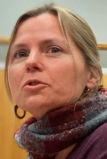
Kelly Biedenweg Oregon State University, USA
Session 2 Invited Speaker
Kelly Biedenweg is an Associate Professor of Human Dimensions at Oregon State University's Fisheries, Wildlife and Conservation Sciences Department. Her research interests are in human wellbeing, social values, and decision making in natural resource management. She has spent the last ten years focused primarily in the Puget Sound developing human wellbeing indicators and working with partners to integrate social science in ecosystem restoration. She received a EPA Early Career Award and an NSF postdoctoral Science, Education, and Engineering for Sustainability fellowship for her research on Integrating Human Wellbeing and Ecosystem Services in the Puget Sound. She has a PhD from the University of Florida in the human dimensions of natural resource management, a master of science in conservation biology and a bachelor of science in marine ecology.
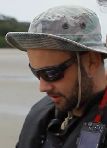
Michael Townsend Waikato Regional Council, New Zealand
Session 2 Invited Speaker
Michael Townsend is the coastal and marine science manager for the Waikato Region of New Zealand. Prior to joining regional government, he spent 11 years as a research scientist at the National Institute of Water and Atmospheric research (NIWA). His research interests include ecosystem services, benthic ecology, ecosystem functioning, biosecurity and the integration of science and policy. His research on ecosystem services ranges from the shallow intertidal to the deep sea, and crosses biophysical and social sciences. Michael has a PhD from the University of York, UK, in environmental economics and management completed at Plymouth Marine Laboratory and a BSc (Hons) in Oceanography with Marine Biology from the University of Southampton, UK.
Realizing scalable artificial intelligence in marine science
Application and best practice of imaging technologies for plankton and ecosystem monitoring
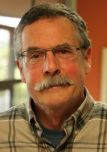
Robert Cowen Hatfield Marine Science Center, Oregon State University, USA
Session 4 Invited Speaker
Bob Cowen is Director of the Hatfield Marine Science Center, Oregon State University and Professor in the College of Earth, Oceans and Atmosphere Science. He has authored or co-authored over 150 publications on topics ranging from coastal fish ecology and early life history, to fishery oceanography, larval transport, population connectivity, and ocean acidification. He has also worked on development of new technologies for plankton sampling and image processing. This research has included the mentoring of 28 graduate and 37 undergraduate students. His external activities include serving on the U.S. Ocean Research and Resource Advisory Panel (ORRAP), External Advisory Committee for the Partnership for Interdisciplinary Studies of Coastal Oceans (PISCO), NOAA/NSF CAMEO Steering Committee, JOI Ocean Observatory Interim Steering Committee, and as CLIOTOP/GLOBEC/IMBER Steering Committee and Early Life History Working Group chair. He is also past President of the National Association of Marine Laboratories (NAML).
Environmental variability and small pelagic fishes in the North Pacific: Exploring mechanistic and pragmatic methods for integrating ecosystem considerations into assessment and management

Jhen Hsu Institute of Oceanography, National Taiwan University, Taiwan
Session 5 Invited Speaker
Jhen Hsu is a Ph. D. student in the Quantitative Fisheries Lab at the Institute of Oceanography, National Taiwan University. Her master thesis focused on demography and the otolith sampling approach of Pacific Bluefin tuna (Thunnus orientalis). Her current research interests include the population dynamics and stock assessment modelling of the Pacific saury (Cololabis saira). Her research was closely linked and collaborated with the North Pacific Fisheries Commission (NPFC). In particular, she is responsible for analyzing the joint fishery data collected from all members in the NPFC and using spatio-temporal modelling (VAST) to develop a joint abundance index of Pacific saury, and also to explore changes in Pacific saury distribution.
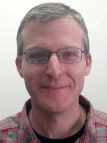
Isaac Kaplan Northwest Fisheries Science Center, National Marine Fisheries Service, USA
Session 5 Invited Speaker
Isaac Kaplan is a Research Fishery Biologist at NOAA’s Northwest Fisheries Science Center in Seattle, USA. He is a member of the Conservation Biology Division and the Ecosystem Science Program, and a contributor to the California Current Integrated Ecosystem Assessment. His focus has been the development of Atlantis ecosystem models that simulate food webs, fisheries, and oceanography in a spatially explicit framework (created by Dr. Beth Fulton, CSIRO Australia). He has developed and collaborated on Atlantis models for the California Current and other US marine ecosystems, as well as the Gulf of California (Mexico). Isaac’s recent efforts include applying ecosystem models to test stock assessment and harvest control rules, and to project the impacts of climate change on marine ecosystems and fishing communities. These climate change efforts center around small pelagic fish (Future Seas project) and groundfish (Groundfish, Communities, and Climate Change in the California Current project) – both apply a suite of oceanographic models, species distribution models, and ecosystem models to understand species and fisher vulnerability to climate change. Isaac is also a member of the joint PICES/ICES Working Group on Small Pelagic Fish (WG43), and NOAA’s Distribution Mapping and Analysis Portal (DisMAP) working group. When Isaac is not simulating whole ecosystems he also collaborates on applications linking seasonal ocean forecasts to fisheries, and a new application of a multispecies assessment model for California Current hake (Merluccius productus).
Using eDNA to assess and manage Non-indigenous species in the North Pacific

Michio Kondoh Tohoku University, Japan
Session 6 Invited Speaker
Michio Kondoh is a community ecologist, the President of The eDNA Society established in Japan in 2018 and a Professor of Ecological Integration Laboratory in the Graduate School of Life Sciences, Tohoku University. His research interest covers population dynamics, species coexistence mechanism, interspecific interactions and community networks. He had recently established a nationwide biodiversity monitoring network based on eDNA metabarcoding, called ANEMONE, to survey the fish biodiversity in freshwater, coastal and pelagic ecosystems of Japan. The data obtained by ANEMONE is made available through the open data database, ANEMONE DB (https://db.anemone.bio/), on 2 June 2022. He recently established ANEMONE Consortium as a platform for academia, private sector, governments and civil society to collaborate for better usage of ecological big data for solving social issues.
Forecasting and projecting climate variability and change on northern hemisphere marine ecosystems using coupled next generation biophysical model
Recognizing the importance of zooplankton to fisheries research
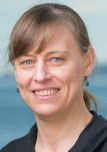
Jennifer Boldt Pacific Biological Station, Fisheries and Oceans Canada, Nanaimo, BC, Canada
Session 8 Invited Speaker
Dr. Jennifer Boldt is a Research Scientist at the Pacific Biological Station with Fisheries and Oceans Canada (DFO) in Nanaimo, British Columbia, Canada. She leads a program on pelagic fish and the environment. She conducts research and collaborates on integrative pelagic ecosystem monitoring surveys to understand biological and physical factors affecting the distribution, biomass, and trophodynamics of pelagic fish and prey species. Research also includes ecosystem-based approaches to fisheries management, state of the ocean reporting, the assessment of the ecological impacts of environmental conditions at the ecosystem scale, improving the understanding of mechanistic linkages from physics to phytoplankton to zooplankton to fish, and the impacts of multiple stressors on ecosystem components. Dr. Boldt has been active in PICES, and served as MONITOR Chair, Science Board member, member of Working Group WG 28 on Development of Ecosystem Indicators to Characterize Ecosystem Responses to Multiple Stressors and WG 36 on Common Ecosystem Reference Points across PICES Member Countries; she is currently serving as a member of the PICES’ integrative science program Scientific Steering Committee (FUTURE-SSC), MONITOR, and WG 43 - Joint PICES/ICES WG on Small Pelagic Fish.
The effects of ocean acidification and climate change stressors on the ecophysiology and toxicity of harmful algal species
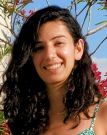
Nour Ayache Virginia Institute of Marine Science (VIMS), College of William and Mary, VA, USA
Session 9 Invited Speaker
I am an assistant research scientist at the Virginia Institute of Marine Science in Virginia, USA. To date, my research interests and efforts have focused on investigating the physical and biogeochemical drivers influencing the physiology and toxicity of harmful algal blooms (HABs), primarily the two harmful algal genera Pseudo-nitzschia and Dinophysis, and the impact of their toxins on marine organisms. During my Ph.D. studies in France and Denmark and my Postdoc in Virginia, USA, I performed a number of studies, including (1) characterizing the morphological variability and toxigenicity of various Pseudo-nitzschia and Dinophysis isolates at local, regional, and national scales. I also studied the impact of different abiotic factors, such as salinity, ocean acidification, and light intensity, on the growth, photosynthetic activity, pigment profiles, and toxin content of various strains of these species. In addition, I recently had the opportunity to test the effects of a variety of Dinophysis species and their associated toxins on the early development of the Eastern oyster Crassostrea virginica, which has a long history of commercial and ecological importance in the Chesapeake Bay, Virginia, USA.
Distributions of pelagic, demersal, and benthic species associated with seamounts in the North Pacific Ocean and factors influencing their distributions
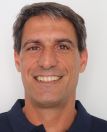
Telmo Morato Okeanos Research Institute of the University of the Azores, Portugal
Workshop 1 Invited Speaker
Dr. Telmo Morato is a Portuguese principal marine scientist at the Okeanos Research Institute of the University of the Azores. He co-leads the Azores Deep-sea Ecology research group aiming to advance the understanding of deep-sea ecosystems in a changing planet to inform the society and the sustainable management of the oceans. Over the last years, Telmo led several research projects and explorations that helped unveiling new deep-sea species, communities, biotopes, and even new hydrothermal vents, but also unveiling the impacts of deep-sea fisheries on such ecosystems. Telmo also lead the development of affordable camera systems to democratize deep-sea exploration and make it accessible to all. All the knowledge gained over the last decade has been successfully transferred for an improved ecosystem-based management and conservation of deep-sea ecosystems at regional, national, and international levels. Telmo is the sub-coordinator of the Okeanos research center and has produced over 100 scientific publications, participated as an international rapporteur for the UN World Ocean Assessment, the Global Assessment Report on Biodiversity and Ecosystem Services, and the FAO Deep-ocean climate change report. Telmo is a national delegate in the International Council for the Exploration of the Sea, the Convention for the Protection of the Marine Environment of the North-East Atlantic, among others.
Integrated Ecosystem Assessment (IEA) to understand the present and future of the Central Arctic Ocean (CAO) and Northern Bering and Chukchi Seas (NBS-CS)
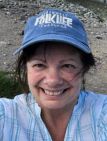
Lisa Eisner Alaska Fisheries Science Center, NOAA, USA
Workshop 2 Invited Speaker
Dr. Lisa Eisner is a Biological/Fisheries Oceanographer at the Alaska Fisheries Science Center of NOAA Fisheries in Juneau, Alaska and Seattle, Washington. Her research focuses on oceanographic processes that influence phytoplankton and zooplankton dynamics and fisheries in the eastern Bering and Chukchi seas. And she has been the lead oceanographer for the BASIS program (Bering Arctic Subarctic Integrated Survey). She is vice-chair for the PICES MONITOR committee and a lead/co-PI on current (and past) eastern Bering Sea and Chukchi Sea research programs.
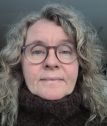
Lis Lindal Jørgensen IMR, Norway
Workshop 2 Invited Speaker
Senior scientist Dr. Lis Jørgensen is an Arctic ecologist at the Institute of Marine Research in Tromsø, Norway. Her research is transferring large dataset on oceanography, biology, human activities and its pressures into area-based integrated ecosystem assessment. She participates in the Norwegian-Russian long term monitoring (started early 1950s) in the Barents Sea and investigate trends and patterns within ecosystem components (with benthos as a specialty) into the larger ecosystem understanding. She co-leads the ICES-PICES-PAME Integrated Ecosystem Assessment working group on an Integrated Ecosystem Assessment for the Central Arctic Ocean that compiles Panarctic temporal and spatial data into ecosystem understanding, human activities, pressures and how this is managed by international regulations. She also leads the expert group in the Arctic Council, PAME (Protection of the Arctic Marine Ecosystem) on the Ecosystem based management. This group deliniated the 17 Arctic Large Marine Ecosystems and a framework to do national, bilateral or multinational ecosystem based management.
SmartNet: Promoting PICES and ICES Leadership in the UN Decade of Ocean Science for Sustainable Development
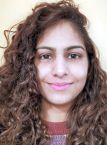
Khushboo Jhugroo University of British Columbia / Hakai Insititute, Canada
Workshop 3 Invited Speaker
Khushboo Jhugroo is a Postdoctoral Researcher at the Hakai Institute and University of British Columbia in Canada. She is investigating the continental shelf dynamics of British Columbia’s Central Coast using ocean glider observations. Khushboo has a PhD from the University of Auckland and the National Institute of Water and Atmospheric Research in New Zealand, where she studied the interaction between terrestrial and oceanic environments. More specifically, she investigated river-induced submesoscale processes in shelf seas. She is currently applying her knowledge gained on shelf seas about freshwater forcing, upwelling, estuarine-like circulation, ocean acidification, marine heatwaves, shelf exchanges with fjords and implications for MPAs to a British Columbia shelf sea. Khushboo earned her MSc from the University of Cape Town, South Africa. Growing up on the island of Mauritius where she is originally from, she developed a big interest in coastal oceanography and ocean risks in Small Island Developing States and Least Developed Countries. She is also passionate to learn about human-ocean interactions, a sustainable blue economy, interdisciplinary work and science communication.
Establishing a North Pacific ECOP node of the global ECOP program to increase inter-regional early career engagement and partnerships during the Ocean Decade
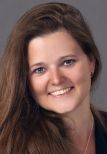
Evgeniia Kostianaia ECOP Programme, IOC-UNESCO
Workshop 4 Invited Speaker
Evgeniia is the Global Coordinator of the UN Ocean Decade endorsed Programme for Early Career Ocean Professionals (“ECOP Programme”) and Consultant at the IOC-UNESCO. She is a marine environmental manager with the research interests in ocean sustainability, marine pollution, ocean clusters, and climate change and food security. In the framework of her research projects at the P.P. Shirshov Institute of Oceanology and Geophysical Center (Moscow, Russia), Evgeniia explores impacts of climate change on railway infrastructure and coastal tourism.
Evgeniia also acts as the Moscow Focal Point of the International Ocean Institute (Malta) and a Black Sea Young Ambassador within the Black Sea Connect Project. She is a member of a working group on sustainable development of the Caspian Sea region and the Caspian Integrated Scientific Network (CASPISNET). She has recently co-edited the book in two volumes “Plastics in the Aquatic Environment” (Springer, 2022).
Integrating biological research, fisheries science and management of broadly distributed flatfish species across the North Pacific Ocean in the face of climate and environmental variability
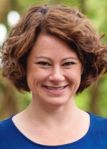
Melissa Haltuch Northwest Fisheries Science Center, NOAA, USA
Workshop 5 Invited Speaker
Melissa Haltuch is a Fishery Research Biologist with the NOAA Northwest Fisheries Science Center and an affiliate faculty member at the University of Washington School of Aquatic and Fishery Sciences (UW SAFS). Her research focuses on fisheries stock assessment methods, quantifying and projecting climate effects on fish stocks, and communicating scientific advice. The primary focus for this work is the U.S. West Coast groundfish fishery, where Melissa leads stock assessments for petrale sole (Eopsetta jordani), lingcod (Ophiodon elongatus), and sablefish (Anoplopoma fimbria). She served on the NOAA Fisheries and the Environment program steering committee and is currently a member of the North Pacific Research Board Science Panel and the Pacific Fishery Management Council Science and Statistical Committee. Melissa also teaches, along with colleagues, Applied Stock Assessment courses at UW SAFS. Some of Melissa’s current research foci include collaborations that use seasonal ocean forecasts to forecast California Current hake (Merluccius productus) summer distribution, a novel multispecies assessment model for hake, a ROMS coupled IBM for petrale sole, and a transboundary Management Strategy Evaluation for NE Pacific sablefish.
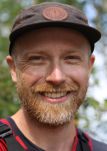
Patrick Thompson Pacific Biological Station, Fisheries and Oceans Canada, Nanaimo, BC, Canada
Workshop 5 Invited Speaker
Patrick Thompson is a biologist in the Marine Spatial Ecology and Analysis section with Fisheries and Oceans Canada (DFO) in British Columbia, Canada. His research integrates theory and empirical methods to study how marine ecosystems respond to environmental change. He studies how species’ environmental tolerances, food-web interactions, and habitat connectivity combine to determine the composition and biodiversity of current and future ecosystems. Much of his current research focuses on the impacts of climate change and fishing pressure on the demersal fish community in the northeast Pacific. Prior to joining DFO, he was a Killam and NSERC postdoctoral fellow in the Biodiversity Research Centre at the University of British Columbia (2016 to 2019). He received his Ph.D. from McGill University in 2015 and his M.Sc. from the University of British Columbia in 2009.
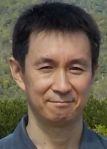
Takeshi Tomiyama Hiroshima University, Japan
Workshop 5 Invited Speaker
Takeshi Tomiyama is an Associate Professor at Hiroshima University, Japan. He worked as a researcher in Fukushima Prefecture, northern Japan, until 2012, studying stock enhancement and fisheries management of coastal flatfishes. After that he undertook ecological studies on the life history of coastal fishes in the Seto Inland Sea, western Japan, through field observations and laboratory experiments. His research interests involve spatial and temporal variations in habitat utilization, reproduction, feeding, and growth of flatfishes. He is also interested in many aspects of flatfish ecology including bathymetric distribution, predator-prey relationships, carrying capacity, and thermal responses. He contributed to the IUCN Red List assessments of 16 western Pacific flatfishes in the family Pleuronectidae in 2021.
Bridging Multiple Way of Knowing within an Integrated Ecosystem Assessment to understand the social and ecological changes in the Northern Bering and Chukchi Seas
Anthropogenic stressors, mechanisms and potential impacts on Marine Birds, Mammals, and Sea Turtles
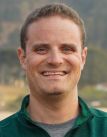
Matthew Savoca Hopkins Marine Station, Stanford University, USA
Workshop 7 Invited Speaker
Matthew Savoca is a National Science Foundation postdoctoral research fellow at the Hopkins Marine Station of Stanford University. He is an ecosystem ecologist whose research focuses on anthropogenic change in marine systems. Matthew completed his Ph.D. in Ecology at the University of California, Davis, where his research focused on why marine animals mistake plastic debris for prey items. More recently, he has studied how microplastics flow through pelagic food webs, using Monterey Bay, California as a model ecosystem for understanding these processes. Specifically, he studies the foraging behavior of baleen whales, their zooplankton and forage fish prey, and their possible interactions with microplastics. Within PICES, Matthew sits on Working Group 42 and has led a paper on the group’s efforts to select bioindicators of plastic ingestion to track this pollutant throughout North Pacific marine food webs.
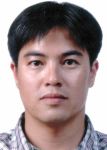
Jongmin Yoon National Institute of Ecology, Korea
Workshop 7 Invited Speaker
Jongmin Yoon is a research scientist at the Research Center for Endangered Species, National Institute of Ecology in South Korea. His research interests are in behavioral ecology and conservation biology. He has spent the last 12 years focused primarily in the behavioral ecology and reintroduction biology for endangered bird species, including oriental storks in rice paddies and Saunders’s gulls with Black-faced Spoonbills in mudflats, in the fields of behavior-conservation biology. Specifically, Dr. Yoon has been focusing on the increasing risk of nest predation on bird populations in recent anthropogenic landscapes as ecological-evolutionary traps. He has a Ph.D. in Zoology from the Colorado State University in Zoology, a M.S. in Ecology and Evolutionary Biology from the University of Michigan, and a B.S. in Biology from the Kyunghee University.
Science Communication Training Workshop 2022: Learn how to Share our PICES Science with the World in an engaging way
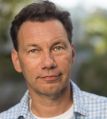
Brian Palermo Science Communicator, USA
Workshop 8 Invited Speaker
Brian Palermo has over 30 years experience in the entertainment industry. And while the content of that industry is wildly variable, the skills of audience engagement are valuable and applicable to scientists. But those techniques are rarely shared amongst science cohorts. So Brian developed a specialized niche of training scientists to improve their communication skills as both writers and presenters.
As a facilitator, Brian has worked with NASA’s Jet Propulsion Lab, Brookhaven National Lab, The Monterey Bay Aquarium and MBARI,
USC’s Keck School of Medicine, the US National Park Service and more. And as a professional actor and member of The Groundlings Theatre, he’s performed with and directed comedy legends such as Kristen Wiig, Will Ferrell, Melissa McCarthy and many others.
More...
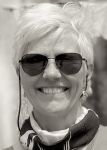
Julie Claussen Science Communicator, Fisheries Conservation Foundation, USA
Workshop 8 Online Instructor
Julie Claussen is a research biologist that has worked in the areas of sustainable fisheries management and the conservation of native fish populations. Recognizing the need for scientist to engage with natural resource constituents, Julie was one of the founding partners of the Fisheries Conservation Foundation where she now serves as Director of Operations. Her work focuses on effective ways to share science-based research with stakeholders so that decisions can be made for the long-term health of aquatic ecosystems. Julie is serves on the advisory council for Randy Olson’s ABT Narrative Training Course and has taught why this form is vital to effective communication. Her most recent communication endeavor has been serving on the development team for the American Fisheries Society Climate Communication Programs, that works with professional aquatic scientists on how to adjust their messaging to engage and stimulate their intended audiences.
Openly Discoverable, Accessible, and Reusable Data and Information in the U.N. Decade
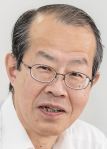
Yutaka Michida IODE/University of Tokyo, Japan
Workshop 10 Invited Speaker
Yutaka Michida, graduated from The University of Tokyo in 1981 and received his PhD in geophysics (physical oceanography) in 1999. After 16 years' work as a research and administrative officer in the Hydrographic Department of Japan Coast Guard, he moved to the Ocean Research Institute (presently Atmosphere and Ocean Research Institute) of The University of Tokyo in 2000. He published more than 80 refereed papers and over 90 other articles, in the fields of his primary major, physical oceanography, and of other related to marine policy including oceanographic data management. He was one of the vice chairs of the Intergovernmental Oceanographic Commission (IOC of UNESCO for the period from 2011-2015, and then appointed as the co-chair of International Oceanographic Data and Information Exchange (IODE), a flagship program of IOC, from 2015-2019. Based on these experiences, he has been an ex-officio member of PICES/TCODE for over the last 10 years. He has been awarded with several level of prizes, including Japan Prime Minister’s Prize of promotion of ocean state in 2015 (for his outstanding contributions to international marine science cooperation). Currently Michida has been involved in several professional activities, for examples, as the President of Japan Society of Marine Surveys and Technology, Vice President of Japan Society of Ocean Policy, and officers and/or members of academic and governmental committees and initiatives related to the ocean issues, including the Chair of the Japanese National Committee for the IOC since 2018.
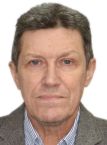
Igor Shevchenko TINRO, Russia
Workshop 10 Invited Speaker
Dr. Igor Shevchenko is an Advisor to the Head of the Pacific branch of the Russian Institute of Fisheries and Oceanography in Vladivostok. He studies differential games and applications of AI techniques in different fields, such as problem generation or population dynamics. He teaches several courses to students who major in mathematics and programming at the Far Eastern Federal University. He was formerly Head of IT in TINRO-Center and was deeply involved in national and international data/metadata sharing activities. He is a long term PICES member and has served both on TCODE and F&A committees. He currently serves as Vice-Chair of Science Board.

Tim van der Stap Hakai Insititute, BC, Canada
Workshop 10 Invited Speaker
I am a Research Technician with the Hakai Institute, and located in Campbell River in beautiful British Columbia (Canada). My background is in marine biology, and I am particularly fascinated by marine ecosystem functioning and the role that data science can play in enhancing our understanding. Since joining the Hakai Institute, I have focused my research predominantly on understanding factors impacting the timing of juvenile Pacific salmon outmigration and their condition, in particular for sockeye salmon. In addition to this, I am also involved in the data mobilization efforts for the International Year of the Salmon (IYS) 5-year collaborative initiative. By adopting or implementing international or community-based standards for metadata and numerous data types related to salmon ocean ecology data, the aim is to facilitate publication of data to open access, domain-specific repositories and ensure adherence to the FAIR Data Principles. This work on an international scale excites me as it’s a rapidly evolving field and increased familiarity with data standards, data management workflows and metadata schemas can hopefully promote federation across platforms and enhance integration between data types and at different spatial and temporal scales. In my off-time I enjoy playing tennis, hiking and fires at the beach.
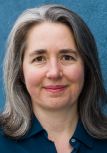
Kate Wing Intertidal Agency, USA
Workshop 10 Invited Speaker
Kate Wing is the founder and Executive Director of Intertidal Agency, a non-profit working at the intersection of conservation, technology, and strategy. Through Intertidal Agency, she leads a team exploring innovations in data governance for a more connected and equitable Blue Economy as part of NSF’s 2021 Convergence Accelerator. She currently serves as Co-Chair of the UN Ocean Decade Data Coordination Group. She’s a founding partner at the Net Gains Alliance, a coalition supporting data modernization in U.S. fisheries, and the Senior Advisor for the Digital Ocean Pillar for the Friends of Ocean Action, a community convened by the World Economic Forum in collaboration with the World Resources Institute. She was The Nature Conservancy California’s 2018 Ocean Data Fellow, where she supported the development of Fishnet.ai, the first open training library of commercial fishing images. She regularly mentors ocean tech accelerator programs and has a breadth of experience in the social sector.



